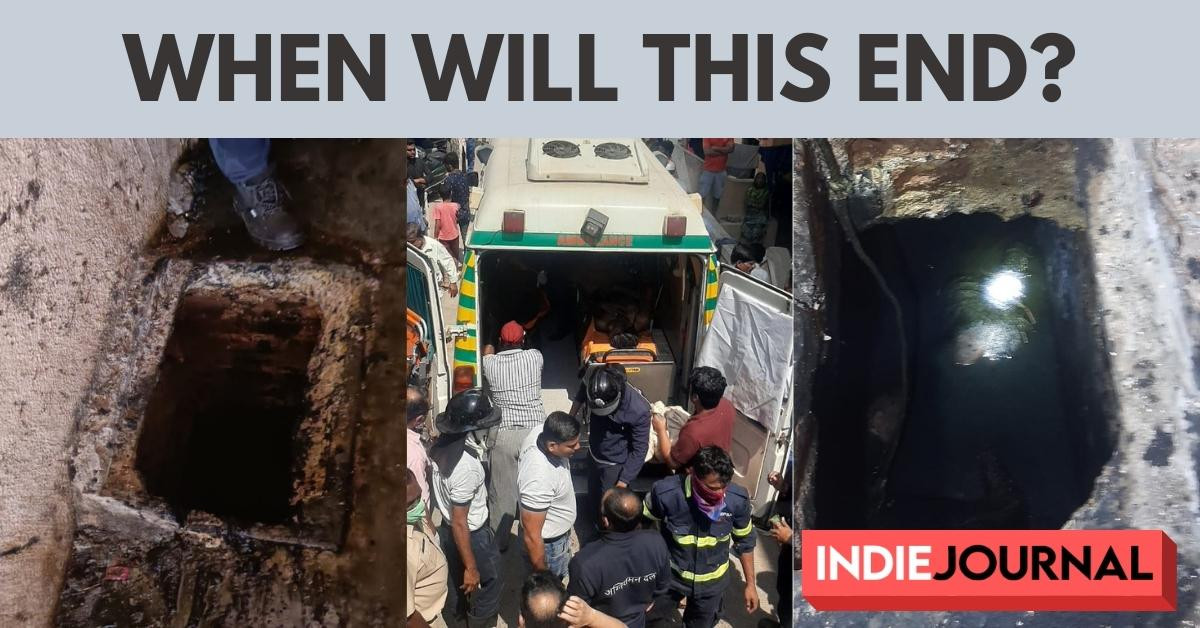India
Four suffocate to death manually cleaning septic tank in Pune
The four were hired to clean a septic tank in residential building in Pune's Loni Kalbhor.

Four people tragically lost their lives in Pune after suffocating while manually cleaning a 10-12 feet deep septic tank, the Pune Fire Department informed. The four were hired to clean the septic tank at around 10 am today at a residential building in Loni Kalbhor. The deceased have been identified as Sikandar Popat Kasbe, Padmakar Maruti Waghmare, Krushna Datta Jadhav and Rupchand Navnath Kamble.
“The residents of Jai Malhar Kunj Building in Kadamvakvasti in Loni Kalbhor, where the incident occurred, had called a vacuum vehicle (sewer suction machine) to clean the tank last night. But while the machine cleared the water, the sludge in the tank stayed at the bottom. So in the morning, they called two people to clean the tank,” said PMRDA fire station officer Vijay Mahajan.
He added that since there was no water in the tank overnight, there is a possibility that gas must have formed in the tank, which led to the suffocation of those who entered the tank first and got unconscious.
“As per eye-witnesses, a third person who accompanied the first two entered the tank to save them. However, he too fell unconscious. When the people around noticed this, they removed the third person from the tank and took him to the hospital. But he did not survive,” Mahajan said.
However, it was only after the Fire Brigade arrived on the spot, were those who had entered first were taken out of the tank. “It was then when we were told that there was another person with them who was also nowhere to be seen. When we checked again, we found the fourth person in the tank,” Mahajan said.
Manual cleaning of sewers and septic tanks is prohibited in India under the Employment of Manual Scavenging and Construction of Dry Latrines (Prohibition) Act, 1993 which was passed to ensure that the people who are indulged in this practice are not deprived of their right to live with human dignity. However, we see the activity rampant across the country, especially in cities, leading to several people dying on the job. In July 2021, the government told the parliament that 941 workers died while cleaning sewers and septic tanks in the last three decades, that is since 1993 when it was first banned.
“But such incidents are more common than you think. Just around two-three months ago, we had to rush to Bhima-Koregaon for a similar situation. When we enter the tanks to rescue, we have all the necessary breathing apparatus. These people have nothing,” Mahajan said.
Senior Inspector Rajendra Mokashi, who is in charge of Loni Kalbhor police station, said, “We have registered a case of accidental death as per our procedure. The bodies have been sent for postmortem and we will continue the investigation.”
As far as registering cases against the employers when such incidents take place, Vasant Pawar, CITU's Pune district Secretary, said, “The workers' unions or activists usually have to take the lead to make sure that cases are registered in such incidents. We can always help. But primarily, it's the responsibility of the police and the labour commissioner to look into the matter and ensure that the family members of the deceased get the help and the compensation that they deserve.”





